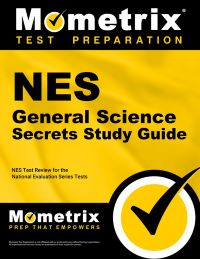NES General Science Exam Study Guide
The NES (National Evaluation Series) General Science Exam is a standardized test designed to assess the knowledge and skills of individuals seeking to become certified science teachers at the secondary education level. This exam is crucial for aspiring educators who wish to demonstrate their proficiency in general science concepts and pedagogical practices. In this guide, we will explore the eligibility criteria, syllabus, and format of the NES General Science Exam to help you prepare effectively.
Eligibility
To be eligible to take the NES General Science Exam, candidates typically need to meet the following criteria:
- Educational Background: Candidates should have completed a bachelor's degree in science or a related field from an accredited institution. This ensures that they have a foundational understanding of scientific principles.
- Teaching Credential: In most states, candidates must be enrolled in or have completed a teacher preparation program. This requirement ensures that candidates have the necessary pedagogical knowledge to teach effectively.
- State Requirements: It's important to check specific state requirements as they can vary. Some states may have additional prerequisites or require candidates to pass other exams before taking the NES General Science Exam.
Syllabus
The NES General Science Exam covers a broad range of topics to ensure that candidates have a comprehensive understanding of general science. The syllabus is typically divided into several key areas:
- Scientific Inquiry and Methodology: This section assesses candidates' understanding of the nature of science, scientific methods, and the ability to design and conduct scientific investigations. Topics include hypothesis formulation, experimental design, data analysis, and interpretation.
- Physical Science: Candidates are tested on their knowledge of physics and chemistry concepts. Key topics include matter and its properties, chemical reactions, forces and motion, energy, waves, and electricity.
- Life Science: This section covers biological principles and concepts. Topics include cell structure and function, genetics, evolution, ecosystems, and the diversity of life.
- Earth and Space Science: Candidates are expected to understand geology, meteorology, astronomy, and environmental science. Topics include Earth's structure, weather and climate, the solar system, and human impact on the environment.
- Science, Technology, and Society: This area explores the interrelationship between science, technology, and society. Candidates are assessed on their understanding of the impact of scientific advancements on society and ethical considerations in science.
Format of the Exam
The NES General Science Exam is designed to evaluate candidates' knowledge and skills through a combination of question types. Understanding the format of the exam is crucial for effective preparation:
- Multiple-Choice Questions: The majority of the exam consists of multiple-choice questions. These questions assess candidates' knowledge of scientific concepts, principles, and methodologies. Candidates are required to select the best answer from a list of options.
- Constructed-Response Questions: In addition to multiple-choice questions, the exam may include constructed-response questions. These questions require candidates to provide written responses, demonstrating their ability to articulate scientific concepts, analyze scenarios, and apply their knowledge to real-world situations.
- Test Duration: The exam is typically timed, with candidates given a set amount of time to complete all sections. It's important to manage time effectively to ensure that all questions are answered within the allotted time frame.
- Scoring: The NES General Science Exam is scored on a scale, with a passing score determined by the state or certifying agency. Candidates receive a detailed score report that highlights their performance in each content area, helping them identify strengths and areas for improvement.
Preparation Tips
Effective preparation is key to success on the NES General Science Exam. Here are some tips to help you get started:
- Review the Syllabus: Familiarize yourself with the exam syllabus and focus your study efforts on the key areas outlined. Understanding the topics covered will help you prioritize your study time.
- Practice with Sample Questions: Utilize practice tests and sample questions to get a feel for the exam format and types of questions you may encounter. This will also help you identify areas where you may need additional review.
- Study Resources: Make use of study guides, textbooks, and online resources to reinforce your understanding of scientific concepts. Consider joining study groups or seeking guidance from educators who have successfully passed the exam.
- Time Management: Develop a study schedule that allows you to cover all topics systematically. Allocate more time to challenging areas and ensure you have ample time for review before the exam date.
- Stay Updated: Science is an ever-evolving field, so it's important to stay informed about recent developments and advancements. Reading scientific journals and articles can enhance your understanding of current scientific issues.
Conclusion
The NES General Science Exam is a vital step for aspiring science educators, providing a standardized measure of their knowledge and skills. By understanding the eligibility criteria, syllabus, and exam format, candidates can better prepare themselves for success. With diligent study, practice, and a thorough understanding of scientific principles, you can approach the exam with confidence and take a significant step toward becoming a certified science teacher.
NES General Science Exam Study Guide
A Complete NES General Science Exam Study Guide that includes sample questions, test tips and a complete study plan prepared by a team of expert and dedicated researchers. Cost-effective and qualified exam help from a committed exam preparation company.
NES General Science Study Guide (printed book)

